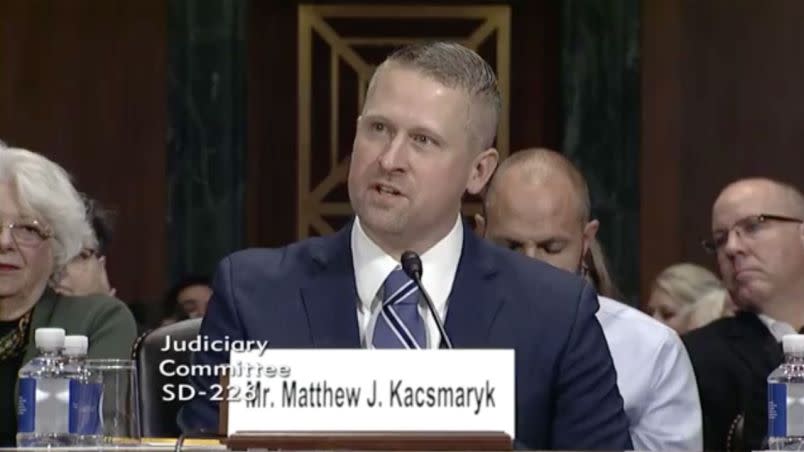Chief Judge Of Kacsmaryk’s District Will Ignore New Anti-Judge Shopping Policy

The chief judge of the northern district of Texas, home to infamous Trump judge Matthew Kacsmaryk, has informed Senate Majority Leader Chuck Schumer (D-NY) that the district will not change its case assigning practices, in repudiation of a new anti-judge shopping policy.
“The district judges of the Northern District of Texas met on March 27, 2024, and discussed case assignment,” Chief Judge David Godbey wrote to Schumer in a letter dated March 29. “The consensus was not to make any change to our case assignment process at this time.”
It’s a brazen rejection of a recent policy change at the Judicial Conference, the policy-making body for the federal courts. Last month, the Conference announced that all cases seeking nationwide relief against a federal or state government action should go through a randomization process — necessary to stop right-wing litigants from planting anti-Biden administration cases with judges like Kacsmaryk, who gets virtually all of the cases filed in his division. His habitual granting of nationwide injunctions means that his rulings are not only nearly always a win for those litigants, but that they also block federal government action for the entire country.
Schumer wrote to the northern Texas chief soon after the Judicial Conference announced its policy change, posing a list of questions, including when the district would adopt the new policy.
In a Monday statement, the Senate majority leader called it “unfortunate” that Godbey wouldn’t end the “odious practice.”
“The Senate will consider legislative options that put an end to this misguided practice,” he added, though such efforts have lost steam before, and would almost certainly die in the Republican House.
Senate Minority Leader Mitch McConnell (R-KY), with others on the right, condemned the policy change and urged judges to ignore it. This court manipulation has been wildly successful for Republicans by any measure, including helping propel legally dubious cases up to the Supreme Court.
Experts told TPM when the policy was announced that they were nervous it wouldn’t have the teeth to force the worst offenders to comply; a couple of them are in the process of trying to get an anti-judge shopping measure into the Federal Rules of Civil Procedure, which would be somewhat more ironclad.